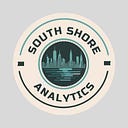How to Break into the World of Data Analytics
“Start where you are. Use what you have. Do what you can.” — Arthur Ashe
In today’s increasingly data-driven world, the field of data analytics offers a multitude of exciting career opportunities. Whether you’re a recent graduate, or a professional looking to transition into a new field, getting into data analytics can seem challenging at first. That said, with the right mindset (re-read that quote above!), resources, and a structured learning plan, you can acquire the necessary skills and knowledge to kickstart your data analytics journey in just a few months.
I originally got into the field of data analytics during my first job after college when I worked as a management consultant in the healthcare industry. I worked on several different projects while at that first job, but I found myself naturally gravitating towards the more analytics-focused ones. These types of projects involved using SQL to gather data before applying the combination of Excel, PowerPoint, and a visualization tool like Tableau to interpret and present that data. While I didn’t have SQL skills beforehand, I quickly realized that learning SQL resonated with the way my mind works, and I started to really enjoy writing detailed queries to help others better understand their data. Before long, some of our key clients started to make real-world decisions based on the analyses I had developed and after that, I was completely hooked!
In writing this blog post, I hope I can inspire some of you to undertake that journey for yourselves and uncover your passion in the world of Data Analytics. Below is a step-by-step guide to help you get started:
Understand the Fundamentals of Data Analytics
Begin your data analytics journey by gaining a solid understanding of the fundamentals. Familiarize yourself with key concepts such as data types, data sources, and basic statistical techniques. Explore different data analytics methodologies and techniques, including descriptive analytics, diagnostic analytics, predictive analytics, and prescriptive analytics. Online resources, books, and tutorials can help you grasp these foundational concepts. I think this high-level AWS resource, titled ‘What is Data Analytics?’ is a great starting point.
Learn Essential Tools and Technologies
Proficiency in data analytics tools and technologies is crucial for success in the field. Start by learning a programming language commonly used in data analytics, such as Python. These languages offer powerful libraries and frameworks specifically designed for data analysis. Familiarize yourself with data manipulation and visualization tools like Pandas, NumPy, Matplotlib, and Seaborn. Learn SQL (Structured Query Language) for data querying and relational database management. Also, don’t underestimate the value of being really sharp in Microsoft Excel and/or Google Sheets. A lot of times SQL & Python are the starting points for creating deliverables in Excel and/or PowerPoint. Finally, try to familiarize yourself with one more data visualization / BI tools such as Looker, Tableau, Mode, and Domo, among others.
Enroll in Online Courses and Tutorials
Online courses and tutorials are fantastic resources for acquiring in-depth knowledge and practical skills in data analytics. Platforms like Codecademy, Coursera, edX, and Udemy offer a wide range of courses specifically tailored for beginners. Look for courses that cover topics such as data analysis, statistics, machine learning, and data visualization. Ensure the courses include hands-on projects and exercises to apply what you’ve learned. My favorite way to learn new programming languages that would be helpful for learning SQL & Python is Codecademy. Here’s a great course to help you learn those two skills specifically, among other skills used by BI Data Analysts & data scientists.
Participate in Real-World Projects
Practical experience is invaluable in the data analytics field. Seek out real-world projects to apply your knowledge and skills. Look for online platforms, such as Kaggle, where you can participate in data competitions and collaborate with other data enthusiasts. Additionally, consider volunteering for local nonprofits or small businesses to help them solve data-related problems. Practical projects allow you to gain hands-on experience and showcase your abilities to potential employers. If you’re currently working already, look for opportunities to showcase your data analytics skills within the context of your current role.
Network and Engage with the Data Analytics Community
Networking plays a significant role in landing opportunities in the data analytics field. Engage with the data analytics community by joining relevant online forums, attending webinars and meetups, and participating in data-focused events. Connect with professionals in the industry through LinkedIn or other professional networking platforms. Engaging with the community provides insights, mentorship opportunities, and potential job leads.
Build a Strong Portfolio and Resume
A well-crafted portfolio and resume can significantly boost your chances of landing a data analytics role. Showcase your projects, data analysis skills, and relevant certifications in your portfolio. Create a personal website or utilize platforms like GitHub to present your work. Tailor your resume to highlight your data analytics skills, projects, and educational background. Include any certifications or online courses you have completed to demonstrate your commitment to professional growth.
Conclusion
Becoming a data analytics professional within six months is an achievable goal with the right approach and dedication. By understanding the fundamentals, learning essential tools, enrolling in online courses, participating in real-world projects, networking, and building a strong portfolio, you can lay a solid foundation for a successful data analytics career. Remember that continuous learning and staying updated with the latest trends in the field are essential for long-term growth. With perseverance and a passion for data analytics, you can embark on a rewarding journey in this exciting field.
